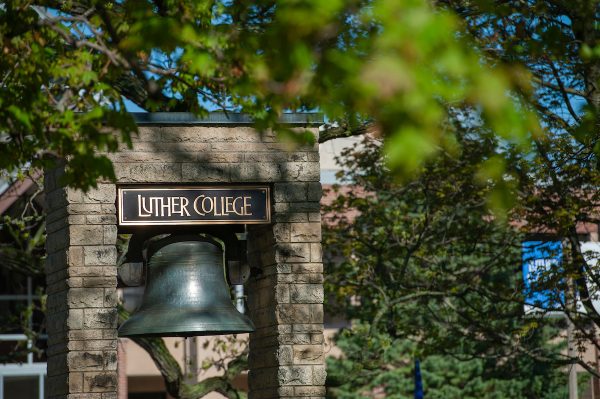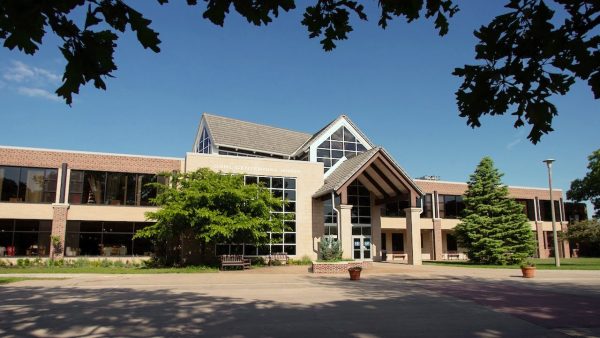Lecturer Dr. Gloria-Ladson Billings speaks about Critical Race Theory
As a teacher, author, and pedagogical theorist, Dr. Gloria Ladson-Billings has notably focused on culturally relevant pedagogy and critical race theory (CRT) in the field of education. Her book: “The Dreamkeepers: Successful Teachers of African American Children” is recognized as a significant work among educators. It relates the experiences of multiple teachers who have educated young African-Amercan students, highlighting the strategies they used to achieve academic success with their pupils. Ladson-Billings was recently invited to Luther as a Black History Month Distinguished Lecturer over Zoom on February 10.
Ladson-Billings’ presentation, “Oh No, Critical Race Theory! Undoing Misinformation and Distortions”, outlined the definition and goal of CRT, as well as explained the many misconceptions about the concept. According to her, critical race theory is “a legal theory that has been appropriated by other social sciences and education, designed to explain racial inequality.” When applied in an academic context, critical race theory questions why racial disparities create inequalities in educational settings.. These include statistics related to suspensions and expulsions of students of color, underrepresentation of students of color in advanced classes, and the overrepresentation of those same students in special education placement. Ladson-Billings also explained that critical race theory has become very controversial, due to attempts by conservative political figures to portray CRT in a negative way, and incorrectly associate it with ideas that are unpopular with certain groups. These ideas include any discussion of race, racism, diversity, equity and inclusion.
“From the very beginning, the idea was to make [people] think that someone was trying to talk about something crazy and un-American,” Ladson-Billings said. “Anything that some groups want discussed can now be de-legitimated, because we can say ‘that’s critical race theory.’”
Ladson-Billings then talked about three different texts that informed her about critical race theory. These included: “And We Are Not Saved” by Derek Bell, “The Alchemy of Race and Rights: The Diary of a Law Professor” by Patricia Jay Williams, and “Race, Reform and Retrenchment” by Kimberle Crenshaw. Ladson-Billings specifically credited Bell, the first tenured Black law professor at Harvard, as being revolutionary with his writing style.
“[Bell] didn’t write a book; even though he’s a legal scholar, he didn’t write it in that way,” Ladson-Billings said. “He wrote it with a very accessible narrative, and it is filled with these wonderful chronicles and comparisons. When I first read this book, I just found [it] fascinating.”
Ladson-Billings also talked about her own published works relating to CRT. She first published an article on critical race theory in 1995 that focused on applying the concept to education, drawing attention to inequalities that exist in the educational system. More recently, she has combined her many written works into a book, “Critical Race Theory in Education: A Scholar’s Journey.” The book was released in 2021, and Ladson-Billings admitted she didn’t have high expectations. She expected it to “sit on shelves,” but said it gained more notoriety as controversy around critical race theory grew.
“I feel a lot like former NBA player Allen Iverson, in that my haters are making me great,” Ladson-Billings said. “In the midst of all of this controversy, [the book] is flying off the shelves. People are trying to read this now, because [critical race theory has] become such a flashpoint.”
Rachelle Sullivan (‘22) feels that Ladson-Billings’ work on critical race theory is very influential. Sullivan – who gave a short speech introducing Ladson-Billings at the beginning of the event – said that Ladson-Billings inspired her to address inequalities both at Luther and while completing student-teaching last fall in Chicago.
“As a Latina going into the field of special education, Dr. Ladson-Billings’ work with critical race theory is important to me because I plan to teach in urban settings where there would be diverse students in communities,” Sullivan said. “Her work has helped me reflect on ways that I can teach a wide range of students and make voices heard in my classroom.”
Dr. Ladson-Billings was formerly the Kellner Family Distinguished Professor of Urban Education in the Department of Curriculum and Instruction at the University of Wisconsin, Madison. Her books, “The Dreamkeepers: Successful Teachers of African American Children” and “Critical Race Theory in Education: A Scholar’s Journey” can be purchased online.






